In 2021, the Academy of Moving People and Images (AMPI) and the Berlinale-European Film Market: Fiction Toolbox Programme started their partnership supported by the Goethe-Institut Finnland and as part of this collaboration AMPI alumna Jelica Jerenic participated the programme in 2022 . In 2023, the selected participant was Mariia Solodiankina, and the participation in EFM and the trip to Berlinale was supported by AVEK. In 2024 & 2025 participation in the program was supported by Finnish Film Foundation.
The recipient of the Doc Tool Box program in 2025 was AMPI alumna Shamsil Balkis. The project was selected by EFM Toolbox Program and Academy of Moving People and Images.
The filmmaker who is selected among AMPI alumni for the programme, after their attendance, shares their experience with the entire AMPI community by writing a reflection article and giving a presentation about the programme and their experience during the programme. You can read the reflection articles as follows:
Jelica Jerinic here
Mariia Solodiankina here
Roxana Sadvokassova here.
The fourth AMPI Alumna at EFM: Shamsil Balkis with his first feature film ‘ECHOES OF SALT WATER MIXED WITH AIR’.
Shamsil Balkis is a Helsinki-based filmmaker (b. Kerala, India). An alumni of the Academy of Moving People and Images, Balkis explores decolonial storytelling practices and is currently pursuing MA in Documentary Film Direction at Aalto University.
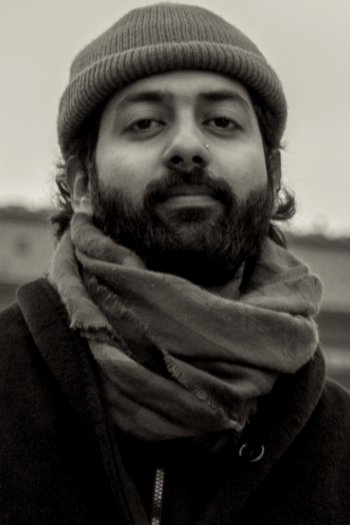
Reflection Article by Shamsil Balkis:
In an initiative that began in 2021, the Academy of Moving People and Images (AMPI) partnered with the Berlinale-European Film Market Toolbox Programme. Over the course of three years, this collaboration created opportunities for three AMPI alumni to participate in the EFM Fiction Toolbox program. As the fourth participant selected through this partnership, I had the opportunity to attend the EFM Documentary Toolbox Programme at Berlinale 2025.
When AMPI announced their open call, I submitted my application with a feature documentary in development, “Echoes of Salt Water Mixed with Air.” The selection process required both a feature-length film project with clear development potential and commitment to producing films. My participation at EFM in Berlin was supported by the Finnish Film Foundation through its collaboration with the Academy of Moving People and Images (AMPI).
EFM Online Training
The program began with a two-week online training phase before the in-person component. Sessions were scheduled to accommodate participants across different time zones. The online workshops focused on a wide spectrum of topics, such as:
Production Fundamentals (budget development and production planning for international documentary projects and financing models), Legal Frameworks (co-production agreements, rights management, and contract essentials), and Distribution Strategies (market analysis and digital distribution platforms) — I noticed that some of these frameworks often lack access to resources, infrastructure, and institutional support that remain limited or largely inaccessible in many Global South contexts.
Each participant was paired with an industry professional according to their project’s needs. I was assigned to Malin Hüber, a Stockholm-based producer. Her guidance on pitching and international co-production tools helped shape my project presentation before I arrived in Berlin.
EFM-Berlinale 2025
The scale of EFM programmes was initially overwhelming when I arrived in Berlin, with events scattered across numerous historic venues throughout the city. Our program maintained a dedicated space as our home base at the Documentation Centre for Displacement, Expulsion, and Reconciliation.
The EFM programmes followed an immersive structure, with days beginning at 9:00 AM and extending into the evening. Daily activities included masterclasses, roundtable discussions with industry professionals, “Meet the Pros” sessions, one-on-one meetings, film screenings, and networking events. During one-on-one meetings, I had the opportunity to pitch my film to the Durban International Film Festival and Toronto International Film Festival.
While I was walking through the Documentation Centre for Displacement, Expulsion, Reconciliation, I couldn’t help but notice the exhibitions on the walls everywhere documenting colonial history—between India and Britain, Latin America, Europe, and other parts of the Global South. The colonial narratives I was reading there felt like sanitized versions of the violence, exploitation, and cultural erasure experienced by colonized nations. These narratives reframed colonial violence as “civilizing missions” and exploitation as “development aid.”
It felt almost theatrical, as if the walls themselves were participating in an ironic performance. Filmmakers from formerly colonized nations gathered in a room labeled “inclusion,” while many of us pitched decolonial film ideas echoing within these walls. The experience resembled attending a dinner party where hosts serve you your own traditional dishes but proudly explain how they’ve “improved” them by removing all the spices.
The most valuable aspect of my EFM experience was the meaningful connections I formed with fellow participants. Our informal gatherings outside EFM enabled genuine conversations and bonding over many concerns we were sharing with each other, such as how institutions often position diversity initiatives for the Global South as savior efforts “helping” filmmakers access an industry that these same institutions have historically gatekept.
Rather than acknowledging systemic exclusion from resources and platforms, this approach creates a performance of inclusion that rarely produces meaningful structural change at a time when we truly need is a complete reimagining of how stories are funded, created, and shared—for opening new possibilities of cinema and for collective liberatory practices.
While I maintain these critical perspectives, I recognize the valuable opportunities programs like EFM offer filmmakers like myself. It’s important to acknowledge systemic issues while appreciating how these spaces provide us essential knowledge, connections, and opportunities that would otherwise be inaccessible. By engaging critically while participating, we can both learn from established institutions and work toward their transformation.
As a participant at the EFM-Berlinale, I had the opportunity to screen my work-in-progress short documentary “Scent of an Ancestral Dream” (previously titled “How to Disappear Completely”) at the EFM market screening. The screening helped to communicate my creative vision to potential collaborators, as the short shares similar themes and visual approaches with my feature project “Echoes of Salt Water Mixed with Air.”
Beyond the official EFM program, I also attended Afro-Berlin masterclasses and panel discussions featuring a diverse group of filmmakers. The sessions at Afro-Berlin felt especially useful as they addressed and celebrated the specific challenges and creative approaches of filmmakers with transnational identities.
A key outcome from the EFM experience and intimate conversations with other participants was the establishment of REACT.WORLD, a collective initiative co-founded with filmmaker Nikhil Chandrika. REACT.WORLD serves as a living organism supporting Global South filmmakers on cross cultural collaborations, with an emphasis on decolonial storytelling practices.
Through REACT.WORLD, we’re establishing a space for filmmakers to nurture projects that might otherwise struggle within traditional frameworks. In a time of increasing funding challenges, REACT.WORLD serves as both a practical resource hub and an ideological framework for collaboration, offering mentorships and collaborative production pathways that could bridge diverse storytelling traditions.
Prior to EFM, I was uncertain about navigating the complex landscape of international co-production and articulating the unique cultural dimensions of my project. The workshops, personal mentorship, and industry exposure at EFM provided not just practical tools but meaningful connections with an exceptional group of talented filmmakers—fellow EFM Toolbox participants from around the world—with whom I hope to collaborate on creative projects in the future.
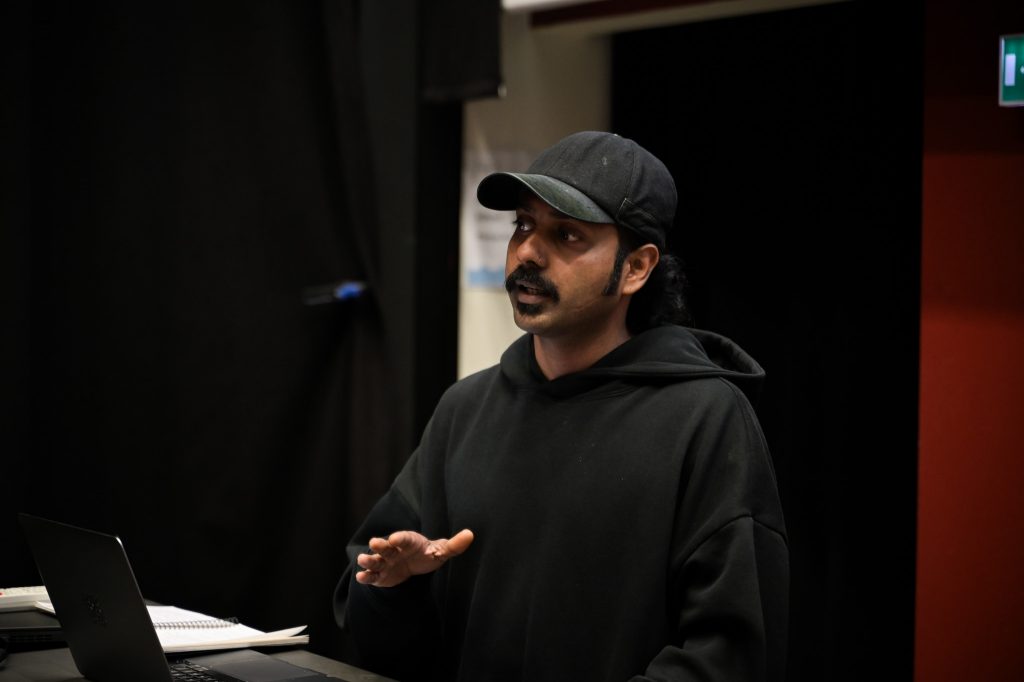
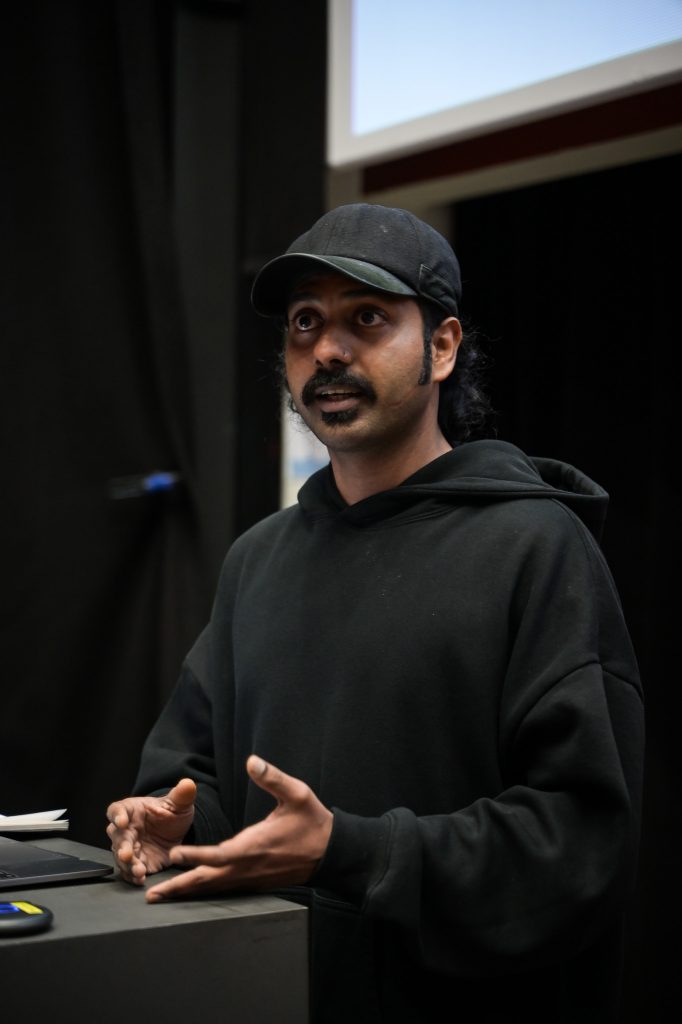
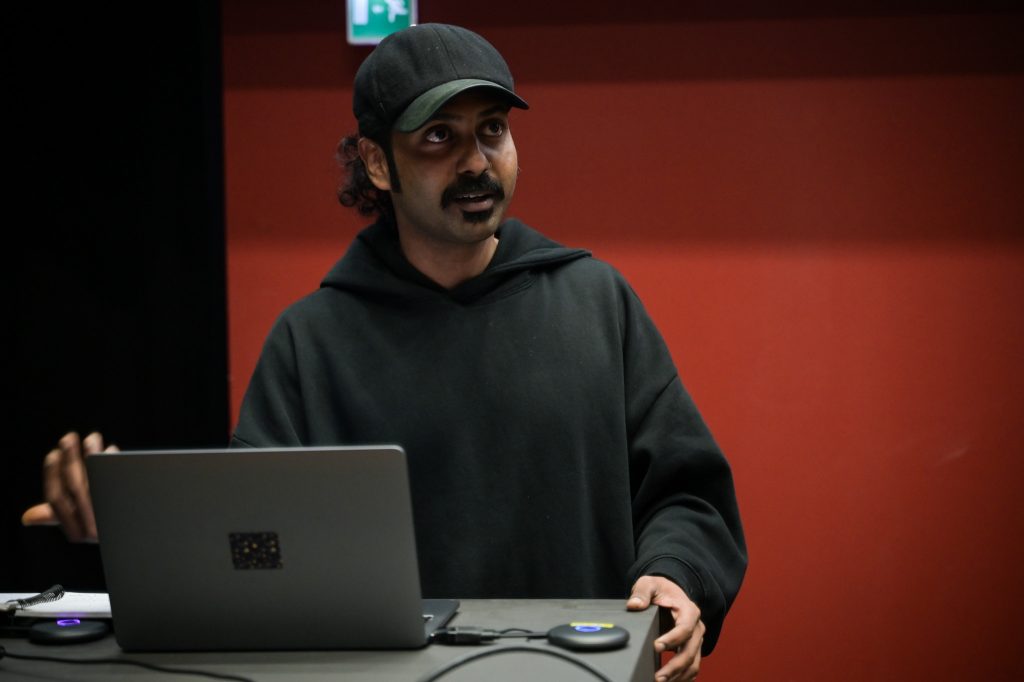
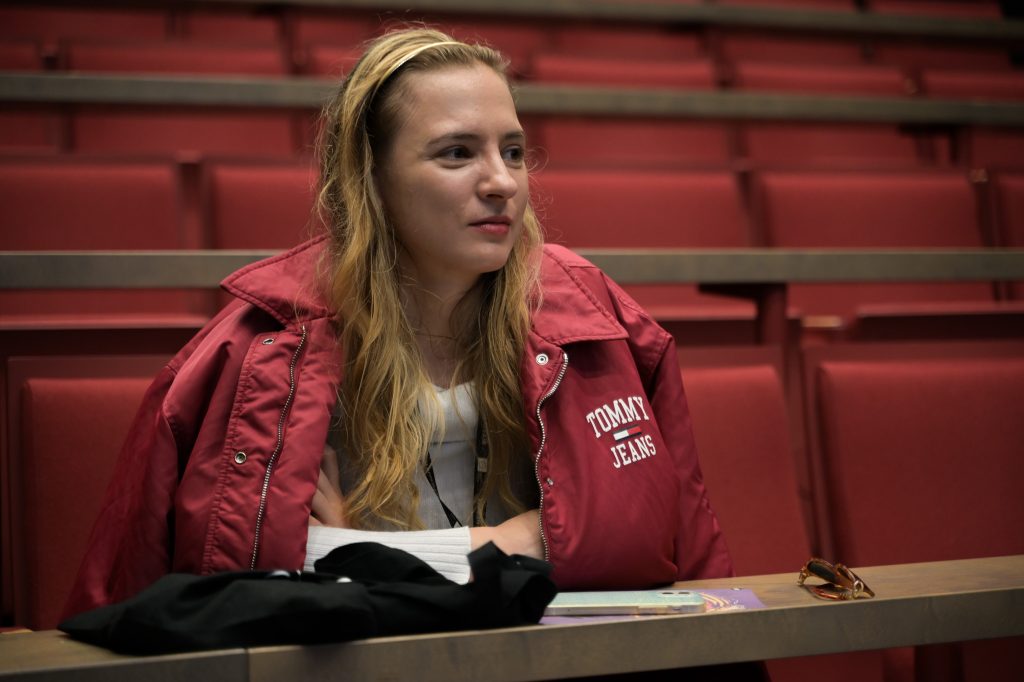
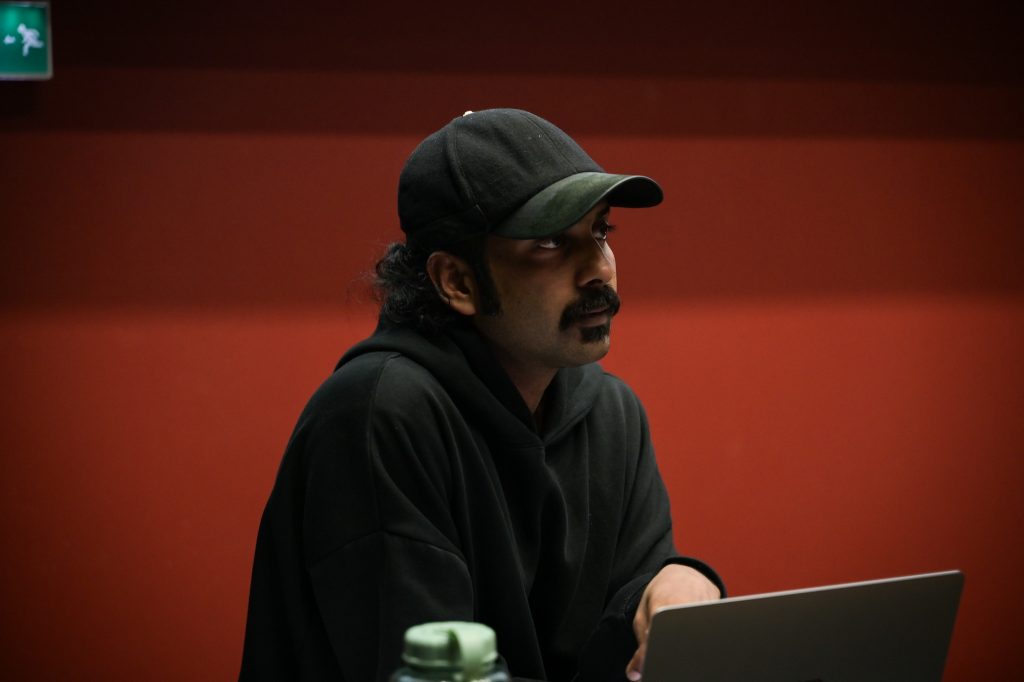
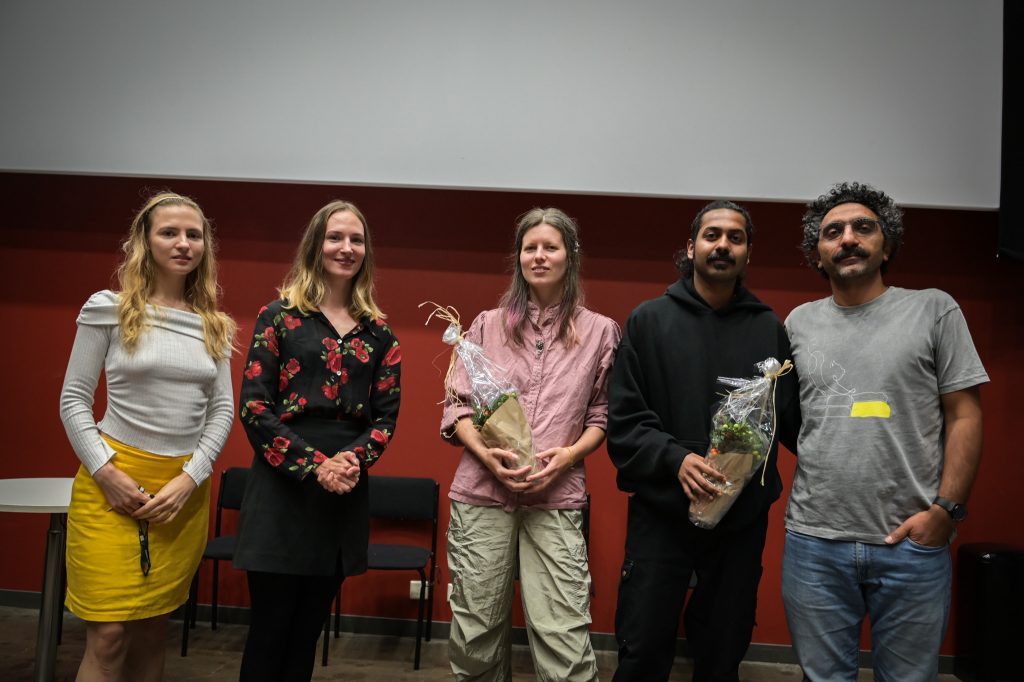
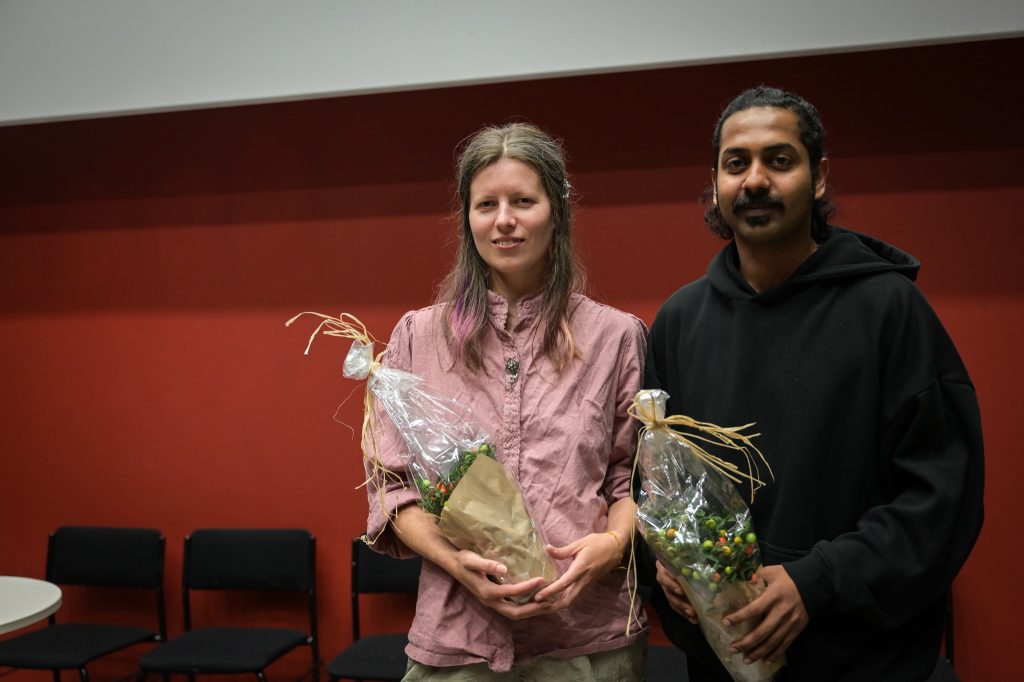
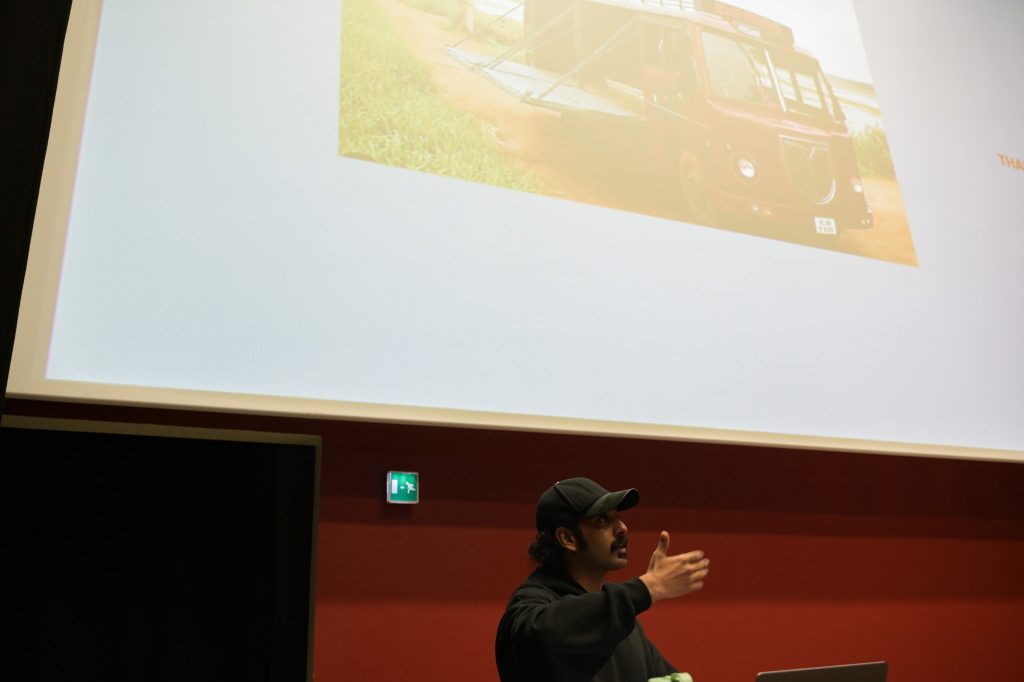
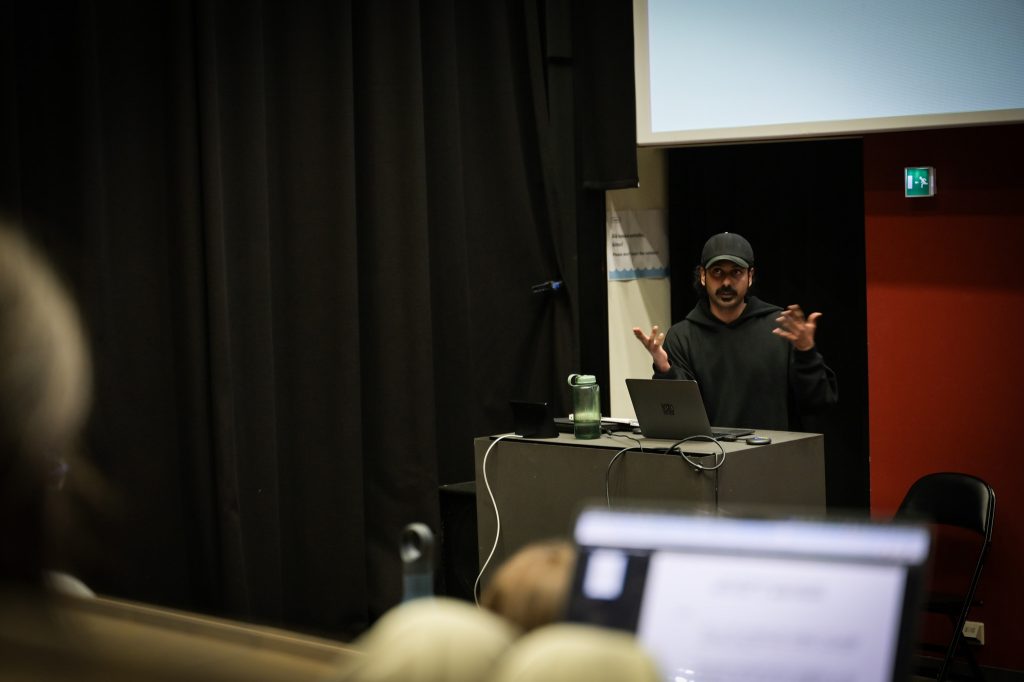
Presentation about Shamsil’s experience took place at Cultural Center Caisa on 10.09. Photos by Samra Sabanovic.